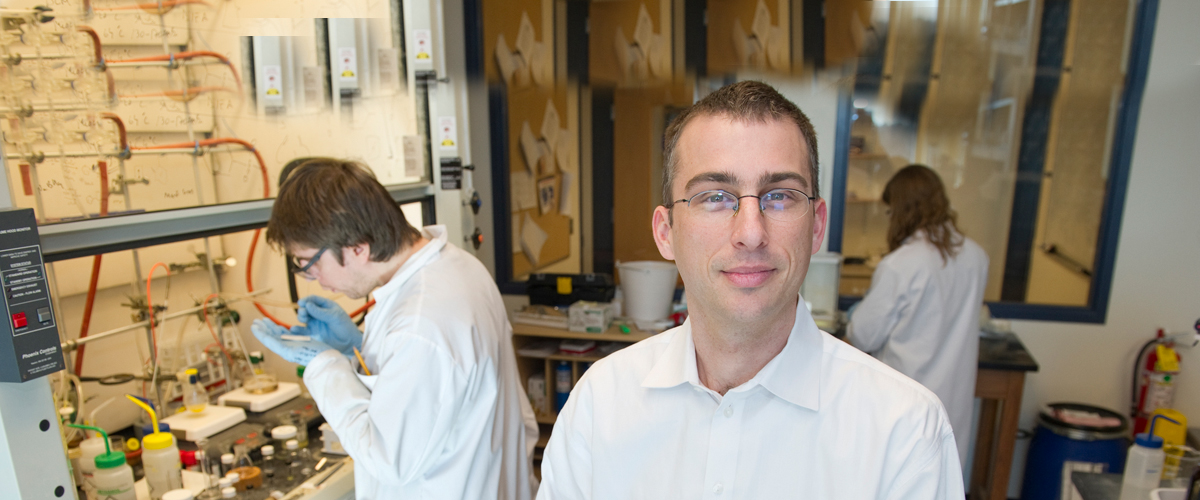by Angela Herring of news@Northeastern
Ninety percent of global healthcare and medical research money is spent on diseases that affect only 10 percent of the population, according to Michael Pollastri, a professor of chemistry and chemical biology who spoke at the College of Science Colloquium last Friday.
Nearly 1,400 new drugs entered the market between 1975 and 1999, he said, but only 13 of those were designed for treating parasitic diseases, which affect more than one billion people each year.
“These diseases affect the poorest people in the world, people who have no voice, people who have no money,” Pollastri said. Thus, he explained, the “blockbuster” drug model, in which great investments must be met with significant financial return, does not apply. For that reason, Pollastri, who entered academia after nearly a decade in the pharmaceutical industry, believes the responsibility to find new treatments for neglected tropical diseases, or NTDs, falls on research labs like his own.
Toward that end, Pollastri announced the launch of the College of Science’s Integrated Initiative in Global Health at last week’s Colloquium. The initiative will include a unique open-source data-sharing platform. Currently, most drug-discovery research operates under complete confidentiality, despite the fact that this approach may duplicate efforts and delay solutions. On the other hand, a fully open model is hard for scientists to trust, owing to the fear of having their ideas and data stolen.
Pollastri hopes that Northeastern will be able to operate somewhere in the middle: “We’re in the process of developing a model that can help bring data together in a way that protects everyone’s intellectual property and yet allows for cross-fertilization,” he said.
The model includes an Internet-based “knowledge store” containing data from labs across the globe working on diseases such as tuberculosis, leshmaniasis, African sleeping sickness and Chagas disease. Only those who agree to a set of strict confidentiality rules will be allowed access, but once admitted, they will have freedom to use what others have contributed to help inform their own work.
“What I’m trying to do is set up a safe area where people can share data, without fearing they’re going to give up their ability to patent,” Pollastri explained by way of example.
The initiative is currently focused on hiring new faculty in the areas of medicinal chemistry, pathogen biology and public health policy and will include new curricula and a global co-operative education program focused on global health.
From a scientific standpoint, the goal of the initiative is to deliver drugs that will diminish the burden of neglected tropical diseases, Pollastri said. He added, “In five years our goal is to be a world leader in global health research, scholarship and training.”

